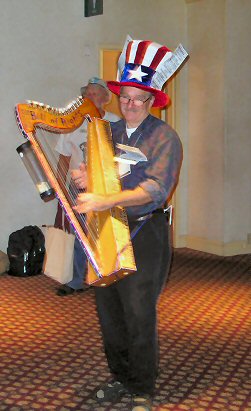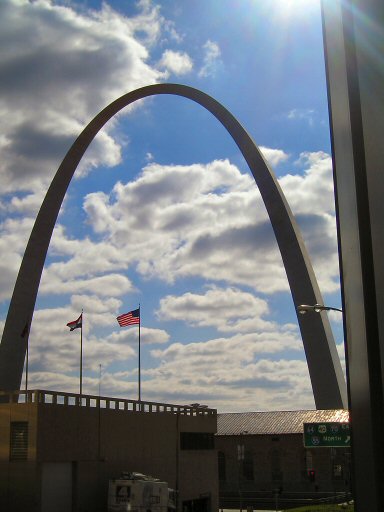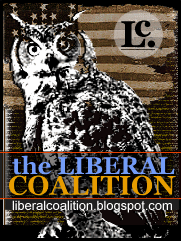This is the first in a series of notes on the sessions I attended at the National Conference for Media Reform. Kind of dry stylistically. I slipped into my minute voice. Enjoy.
What Have We Won? A History of Media Activist Victories.
Jeff Cohen, founder of
Fairness and Accuracy in Reporting (FAIR), began the discussion, talking about the success FAIR has had over the years. He put forward the suggestion that media reform movements can help reporters develop the courage to change their lazy ways.
Dee Dee Halleck, of
Deep Dish Television, then spoke, giving an extensive overview of the history of the media reform movement. She covered the struggles to make Public Broadcasting really public. She also talked about struggles over how the big media portrays minorities. She also discussed struggles around getting fair coverage of international issues, particularly free trade.
Mark Lloyd, from the
Center for American Progress and former member of the Clinton White House, began his comments expressing happiness that there were so many young people around. Things are changing very fast, so it is difficult to know what is going to happen exactly. Democracy requires communication. Fixing all of our other problems requires us to be able to talk to each other, frankly and openly.
This is a dark time. The Administration opposes all media reform, and they oppose it actively. The FCC is in opposition to the media. We don?t have the Senate; we don?t have the House of Representatives. And we are as distracted and divided as we have ever been. But dark times can lead to vast reforms. We do have a few things in our favor. We have the right to make our arguments before the FCC. We have standing before the courts to bring our case forward.
He then commented on the Evidence of things not seen. In particular he spoke of the 1996 telecommunications act, providing a defense to it, or at least some mitigating factors. He noted that the act requires telecommunications firms to serve schools and rural communities. It also required the telecommunication companies to remove barriers to women and minorities.
Andrew Schwartzman, of the
Media Access Project, commented that this was an old fogies panel. He discussed how the system is supposed to work, and, in particular, how Courts are supposed to decide cases. They need to base their decisions on the record but also on the potential harm caused by the decision.
Then followed a question and answer section. Several asked about a good book overview of the history of the Communications history. One book suggested was
Changing Channels: The Civil Rights Case That Transformed Television. The
work of Robert W. McChesney was recommended as well. The core issues of the Media Reform Movement are justice and non-discrimination and translating those values into technological and salient terms.
They were asked what they would like to see in 50 years. An independent network that provided an outlet for independent filmmakers would be nice. They would like to see genuine public television, and stronger limits on how many media outlets any one company can own.
There was a question what the Center for American Progress does. They are not affiliated with the Democratic Party, but are interested in a broad portfolio of liberal issues.
There was a discussion of the obstacle that the current media setup is to Democracy. Activists and left wing voices are minimized in the media, and so real progress on some of these issues is impossible. The Blogs and the Internet and independent papers aren?'t enough. We need to get our voices into the mainstream media.
It ended with a brief discussion of hope. The people running these issues aren'?t geniuses. Look at the AT&T break up. They aren?'t all powerful, and they can be beaten.





